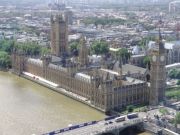| Testing | |
| £ million | |
|
2007-08 |
69.9 |
|
2008-09 |
69.8 |
|
2009-10 |
59.1 |
|
2010-11 |
52.1 |
|
2011-12 |
51.9 |
| Enforcement | |
| £ million | |
|
2007-08 |
32.3 |
|
2008-09 |
44.8 |
|
2009-10 |
49.4 |
|
2010-11 |
42.3 |
|
2011-12 |
39.0 |
PACTS comments: Included in the work of VOSA is the HGV Fleet Complaince Check, to determine the roadworthiness and traffic compliance of GB registered vehicles and trailers. Of the 3609 vehicles checked for roadworthiness defects in 2010:
– 10.4% of vehicles were issued with prohibitions (2.5% immediate; 7.9% delayed)
– A further 13.9% warranted an inspection notice
– 75.7% had no roadworthiness defects
– £450 was also collected in Graduated Fixed Penalty Deposits from seven drivers due to immediate prohibitions on their vehicles.
| Number | |
|
2012 |
(1)6 |
|
2011 |
13 |
|
2010 |
8 |
|
2009 |
22 |
|
2008 |
12 |
|
2007 |
24 |
|
2006 |
18 |
|
2005 |
22 |
|
2004 |
22 |
|
2003 |
22 |
|
2002 |
17 |
| (1 )Up to 21 June 2012 | |

